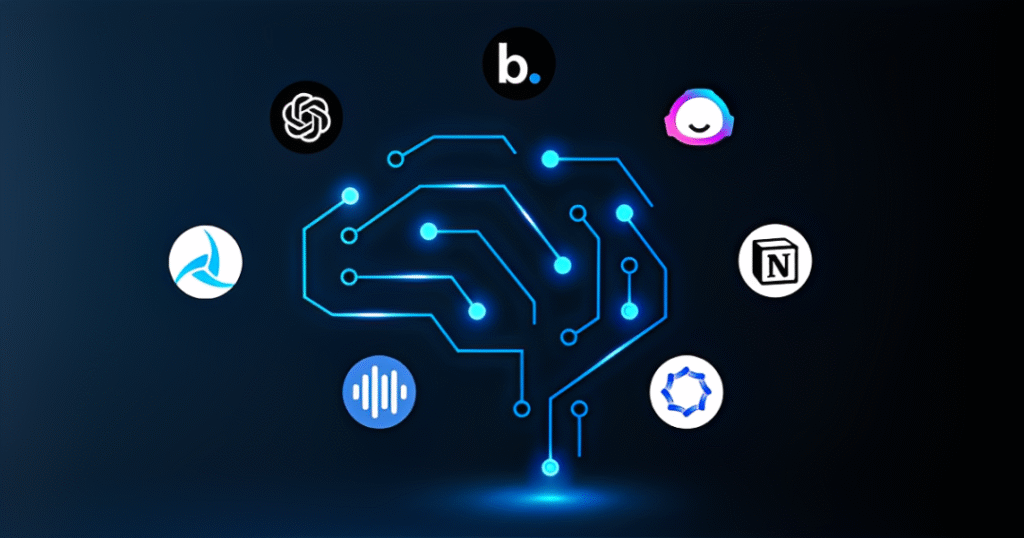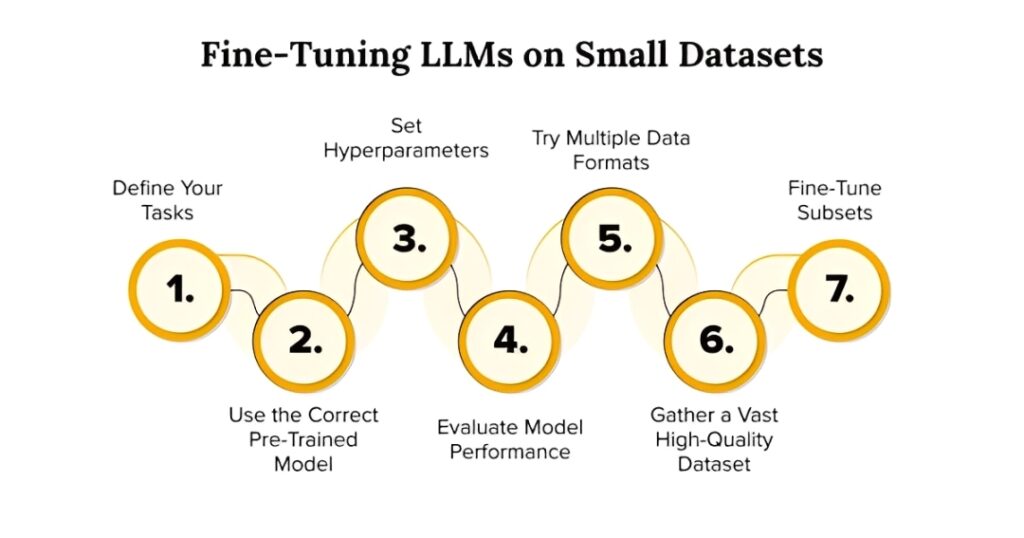In today’s fast-paced world, small teams face big challenges. They need to handle tasks like marketing, customer support, and daily operations with limited resources. That’s where AI tools come in. These solutions help teams work smarter without breaking the bank. For small businesses looking ahead to ai tools for small business 2025, finding cheap ai tools for startups can make a real difference. Even for an ai stack for non-tech teams, options exist that are easy to set up and use.
This post covers practical ways to build a low-cost AI setup. We’ll look at tools that fit tight budgets, often with free plans or low monthly fees. Expect real examples, step-by-step advice, and tips to get started. By the end, you’ll have a clear plan to pick and use these tools in your team.
Why Small Teams Benefit from AI Tools
Small teams often juggle multiple roles. One person might handle sales, content, and admin work. AI tools step in to automate routine tasks, freeing up time for what matters most. For instance, they can draft emails, analyze data, or create images quickly.
Consider the growth in ai tools for small business 2025. Many businesses report saving hours each week with these aids. Tools like chatbots handle customer questions around the clock, while writing assistants polish reports or social posts. This means better output without hiring more staff.
Budget is key for small teams. High-end software can cost hundreds per month, but low-cost options start at free or under $20 per user. These include free tiers from big names like Google or Microsoft, plus startup-focused apps. The goal is to stack tools that work together, creating an efficient system.
AI also levels the playing field. Non-tech teams can use drag-and-drop interfaces to build workflows. No coding needed. This setup helps teams focus on growth instead of getting stuck on basics.
In short, AI tools boost efficiency, cut costs, and support scaling. Next, we’ll break down key areas where they help.
Common Challenges for Small Teams
Small teams deal with time limits and skill gaps. Marketing might fall to someone without design experience, or sales tracking gets messy in spreadsheets. AI fills these holes.
For example, data analysis used to require experts. Now, tools pull insights from simple queries. Customer service can overwhelm a small staff, but AI chat handles common queries.
Burnout is another issue. Automating repetitive work reduces stress and lets teams tackle creative tasks.
How AI Fits into Daily Work
AI integrates into existing routines. Start with one tool, like a writing helper, then add more. Over time, this builds a full stack.
Teams see quick wins: faster content creation, better lead tracking, or automated scheduling. The key is choosing tools that match your needs and budget.
Key Areas Where AI Tools Make an Impact
AI covers many business functions. We’ll focus on productivity, marketing, customer service, sales, and design. Each area has low-cost options suited for small teams.
Productivity and Workflow Tools
Productivity tools help manage tasks and organize information. They automate scheduling, note-taking, and collaboration.
Notion AI stands out here. It’s built into the Notion app, which many teams already use for notes and databases. The AI feature summarizes pages, generates ideas, or answers questions based on your content. Pricing starts free, with AI add-ons at $8 per user per month. For small teams, this means turning messy notes into clear action plans.
Another pick is Otter.ai for meetings. It transcribes calls in real time and highlights key points. Free plan allows 300 minutes per month, with paid options at $8.33 per user. This saves time on follow-ups.
Fireflies.ai does similar work, integrating with Zoom or Google Meet. It captures notes and assigns tasks automatically. Basic plan is free, pro at $10 per month.
For task management, Motion uses AI to schedule your day. It pulls from calendars and to-do lists to optimize time. Starts at $19 per month, but offers value for busy teams.
These tools form the base of your stack, handling daily grind so teams can focus elsewhere.
Marketing and Content Creation Tools
Marketing requires consistent output, from social posts to emails. AI speeds this up without big costs.
ChatGPT from OpenAI is a go-to for generating text. Use it for blog ideas, ad copy, or product descriptions. Free version works well, with Plus at $20 per month for advanced features. It’s ideal for cheap ai tools for startups needing quick content.
Jasper focuses on marketing copy. It creates blog posts, emails, and more. Starter plan is $39 per month, but includes templates for common needs.
Copy.ai offers similar help, with a free plan for basic use and pro at $36 per month. Both integrate with tools like Google Docs.
For automation, Gumloop builds no-code workflows. Connect apps to automate posts or leads. Free tier available, paid from $10.
Hootsuite uses AI for social scheduling and analytics. Free for one user, plans start at $99 but often discounted for small teams.
These keep marketing steady without full-time staff.
SEO and Analytics in Marketing
AI also aids SEO. Tools like Ahrefs have AI features, but for low-cost, try free Google Analytics with AI insights. It spots trends in site traffic.
For content optimization, Grammarly goes beyond editing. It suggests tone and clarity for SEO-friendly writing. Free basic, premium $12 per month.
Customer Service and Support Tools
Good service builds loyalty, but small teams can’t staff 24/7. AI chatbots fill the gap.
Zendesk AI automates responses and routes queries. Starter plan $19 per agent per month. It learns from past interactions.
HubSpot’s chatbot is free with their CRM. It handles FAQs and books meetings. Perfect for an ai stack for non-tech teams.
Tidio offers live chat with AI bots. Free for basics, paid from $29.
These tools reduce response times and free agents for complex issues.
Personalizing Customer Interactions
AI analyzes customer data to tailor replies. For example, Intercom’s AI suggests personalized messages. Plans start at $74, but worth it for growing teams.
Sales and CRM Tools
Sales need leads and follow-ups. AI streamlines this.
Pipedrive AI helps prioritize deals and automate emails. Starts at $14 per user.
Seamless.AI builds lead lists with AI. Free trial, then $99 per month for teams.
HubSpot CRM is free and includes AI for scoring leads.
These boost conversion rates without extra hires.
Lead Generation Strategies
Use AI to scan social media for prospects. Tools like LinkedIn Sales Navigator have AI recommendations, starting at $99. For cheaper, try free X (Twitter) searches with AI summaries.
Design and Media Tools
Visuals matter for branding. AI makes creation easy.
Canva AI generates images and edits designs. Free basic, pro $12.99 per month.
DALL-E in ChatGPT creates custom images. Included in Plus plan.
Pictory turns text into videos. Starts at $19 per month.
Synthesia for AI videos, but pricier at $22 per month.
These help non-designers produce pro content.
Video and Image Best Practices
Start with templates in Canva. AI suggests layouts based on your input.
Building Your Low-Cost AI Stack
Now, let’s put it together. A stack means tools that connect, like using Zapier to link ChatGPT with HubSpot.
Start small: Pick 3-5 tools. For a basic stack:
- Productivity: Notion AI (free/$8)
- Content: ChatGPT (free/$20)
- Marketing: HubSpot (free)
- Support: Tidio (free/$29)
- Design: Canva (free/$13)
Total under $50 per month for basics.
For ai tools for small business 2025, watch for updates like better integrations.
Integration Tips
Use Zapier for connections. Free for simple zaps, paid $20 per month. Example: Auto-post ChatGPT content to social.
Ensure tools have APIs or built-in links.
Scaling Your Stack
As teams grow, add features. Start free, upgrade as needed.
Real-World Examples of AI Stacks in Action
A small e-commerce team uses ChatGPT for product descriptions, Canva for images, and HubSpot for emails. They save 10 hours weekly.
A startup agency employs Otter.ai for client calls, Jasper for proposals, and Pipedrive for tracking. Leads increased 20%.
For cheap ai tools for startups, a freelance group relies on free Grammarly, Notion, and DALL-E. They handle more clients without burnout.
A non-tech consulting firm built an ai stack for non-tech teams with Trello AI (via plugins), Zendesk, and Gumloop. Automated reports cut admin time in half.
These stories show real gains.
Case Study: Marketing Firm
A five-person marketing firm started with free HubSpot and ChatGPT. They added Canva pro for visuals. Results: Doubled client output in six months.
Case Study: Retail Startup
Using Pictory for promo videos and Seamless.AI for leads, they grew sales 15% on a $50 monthly budget.
Tips for Implementing AI Tools
Start by assessing needs. What tasks take longest? Pick tools for those.
Train your team. Most have tutorials; spend an hour learning.
Test integrations. Run pilots before full rollout.
Monitor ROI. Track time saved or revenue gained.
Stay updated on ai tools for small business 2025 trends, like new free features.
Handle data privacy. Choose tools with strong security.
Avoid overload. Too many tools confuse teams; stick to essentials.
Common Mistakes to Avoid
Don’t ignore free trials. Test before buying.
Match tools to skills. For non-tech, pick user-friendly ones.
Budget for training time.
Measuring Success
Use metrics like hours saved, leads generated, or customer satisfaction scores.
Adjust as needed.
For more interesting and informational blogs visit our website Lidarmos
Final Thoughts
Building an AI tools for small teams: practical low-cost stack is straightforward. With options like ChatGPT, HubSpot, and Canva, you can start today. These cheap ai tools for startups fit tight budgets, while an ai stack for non-tech teams keeps things simple.
The payoff? More efficiency, better results, and room to grow. Pick a few tools, integrate them, and watch your team thrive. If you’re ready, check free trials and build your setup.


